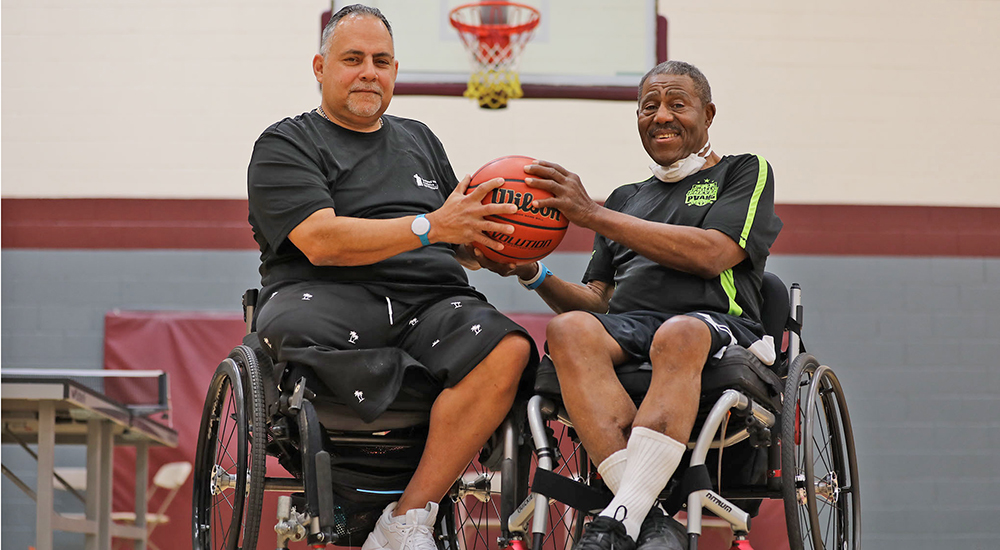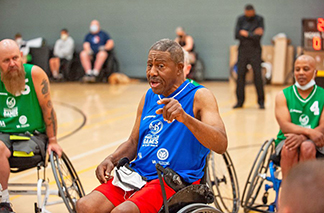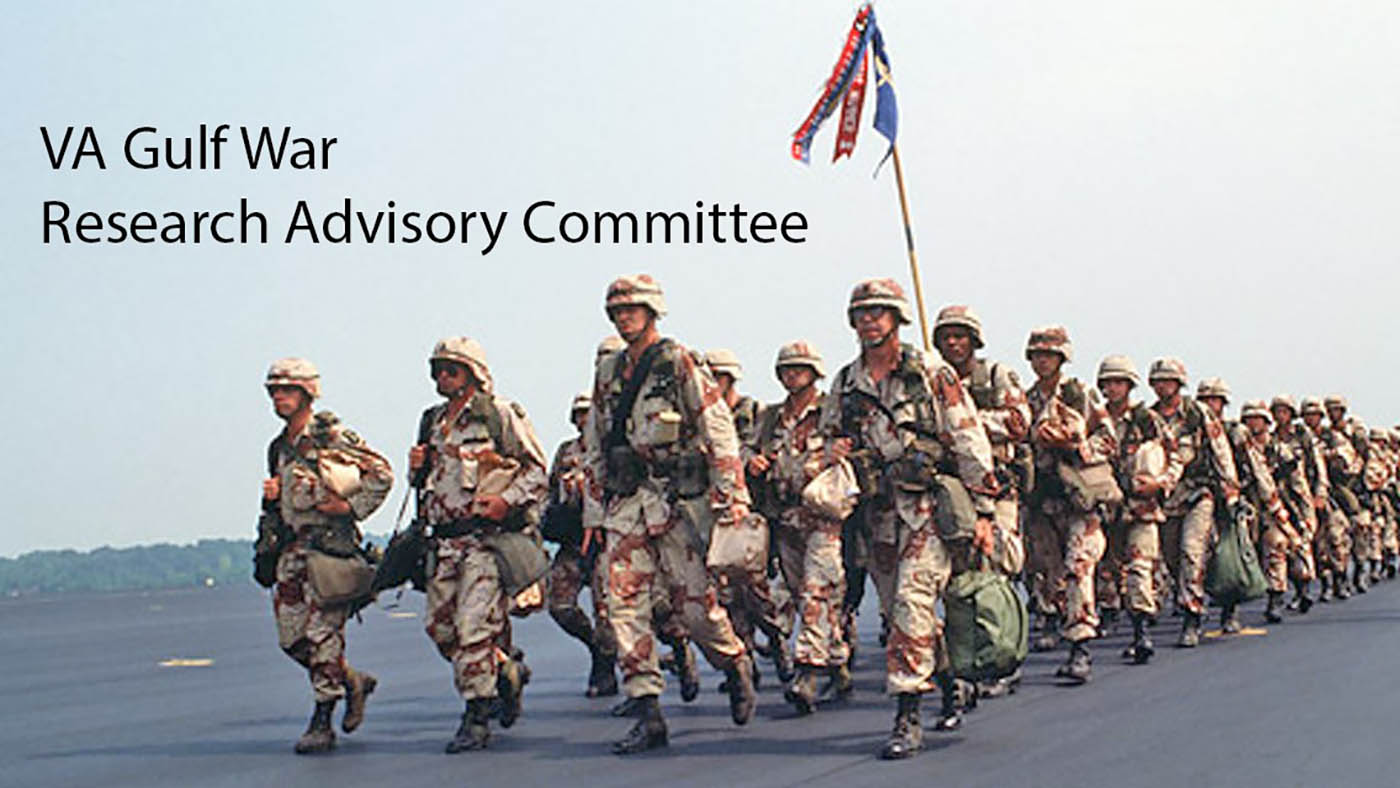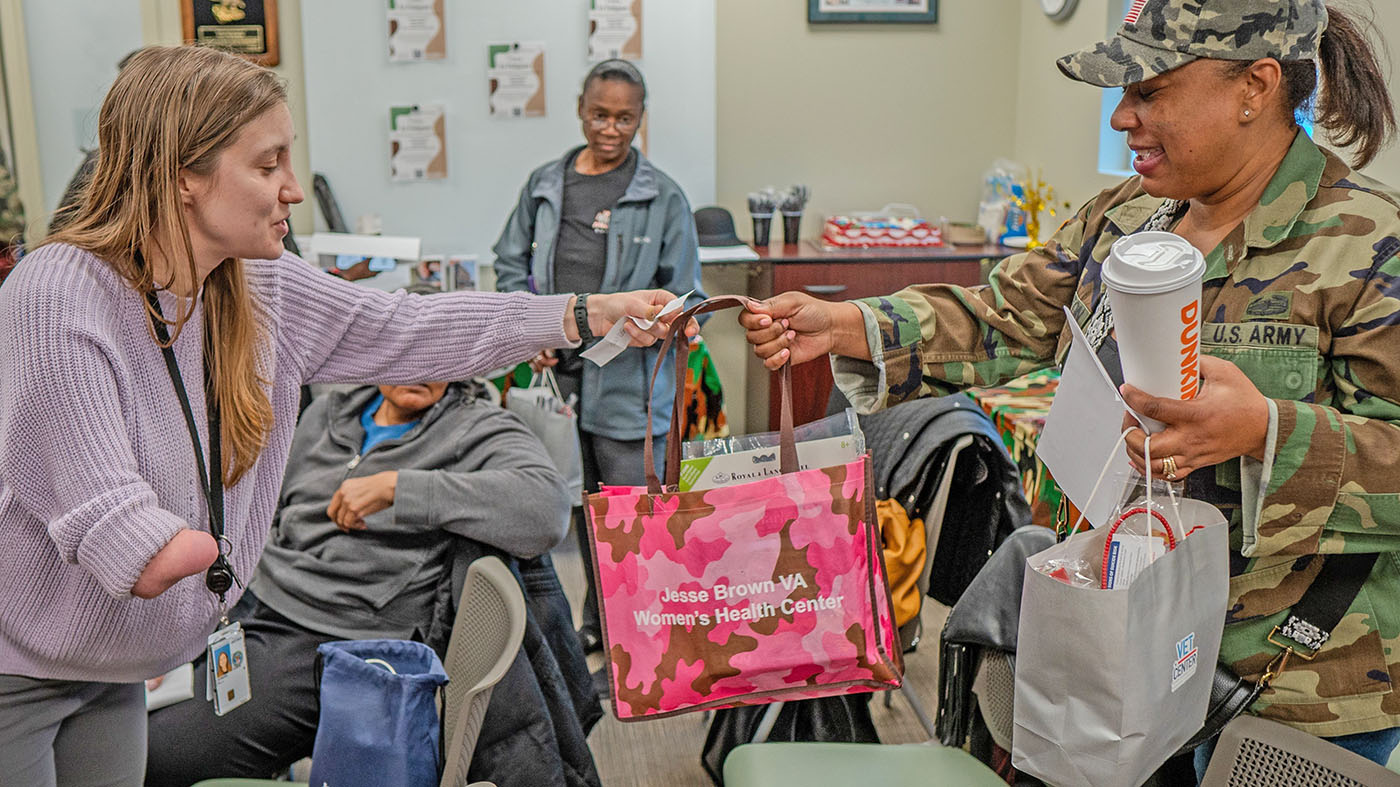New York vs. Philadelphia. Broadway vs. Broad Street. It’s a storied rivalry that exists in nearly every sport. But with that in-game animosity comes motivation, respect and sometimes even friendship.
New York state of mind
Raul Acosta was born and raised in New York City before joining the Marine Corps in 1975. After separating in 1980, he returned to New York City. “That will always be home to me,” he said.
Acosta spent much of his Marine Corps career in Camp Lejeune, which years later he would find out was the cause of his toxic exposure. In 1991, doctors removed a grapefruit-sized tumor from his abdomen. Complications following the surgery resulted in poor circulation to his legs, eventually leading to the amputation of his right leg.
“I didn’t want to come outside. I didn’t want people to look down on me,” he said. “Then someone introduced me to the wheelchair games, and that changed my perspective. I saw wheelchair basketball, and it opened my eyes.”
Acosta learned how to play this new form of basketball, and with practice, he developed the skills to compete at an elite level. He was selected to represent New York in the National Wheelchair Basketball Association. The on-court competition equaled the off-court camaraderie.
“We’d sit and eat together but when it was game time, I didn’t care. We’d flip each other, knock each other down. That was the spirit of the game.” While each team played hard, there was a special animosity between New York and Philadelphia.
The rivalry is born
One player on the Philly team had a reputation for his physical play: Eugene Tatom, a Marine who had been in a wheelchair since he stepped on a land mine two days before he was supposed to leave Vietnam. Tatom was several years older than many of the other athletes, but with that age came experience.
“I was an all-American athlete in three sports in high school, so when I woke up in traction after my injury, I was devastated,” Tatom said. “Then a guy tells me about wheelchair basketball. They wheeled my bed out to watch a game and I was hooked.”
Tatom learned to play when wheelchair basketball was in its infancy. “I had to use those old 50-pound chairs. I still have scars on my hands from the wheels on those old chairs,” Tatom said. “While early on he wasn’t the fastest or best shooter on the court, he made up for it with grit.
Throughout the 90’s, Tatom and Acosta fought like cats on the court. “It was a war going on,” said Tatom. “Every tournament we went to, I’d look up when we played New York.” Each of them served as a leader for their teams. But off the court, the two Marines developed a friendship.
Forming the dream team
A job opportunity had Acosta moving to Philadelphia and he joined his once heated rival on the court. “That whole chemistry changed,” said Acosta. “Now we aren’t rivals. We’re buddies.”
“At first I was like, ‘It’s a miracle. He’s on our team now!’” said Tatom. “But I knew his weakness from all those years of knocking him out of his chair. I wasn’t going to let anyone else do that.”
The pair formed an unstoppable team. After years of trash talk and cheap shots, they were now a dynamic duo. They played together for years until another job opportunity took Acosta to Miami where he now serves Paralyzed Veterans of America as a National Service Officer. The two kept in touch and meet up every year at the Wheelchair Games.
Passing the torch
In 2019, Tatom nearly lost his life to complications from rheumatoid arthritis. When Acosta found out, he was scared he had lost his friend. “I called him up to check on him and told him he had better be at the next Wheelchair Games. Before the games this year, I said, ‘Are you sure you going to come? You’d better be here.’”
And true to his tough-as-nails reputation, Tatom came to the games and even signed up for basketball. “I’m out here symbolically. I probably shouldn’t even be out here playing. I go up for a layup and my shoulder locks up on me and I can’t make a shot to save my life. I’ve still got it up here though,” he said, pointing to his head.
Tatom and Acosta, at 78 and 65 years old respectively, know that their best days of hoops are behind them, but they hope to inspire another generation of wheelchair athletes.
“When you build and you work, you gotta have someone else to continue that,” said Acosta. “We gotta pass the torch to someone.”
While they may not be dominating the court like in the good old days, Acosta and Tatom still look for one another upon arriving at the Wheelchair Games each year. And thought the trash talk remains strong, their friendship is stronger.
The National Veterans Wheelchair Games, founded in 1981, is the largest wheelchair sports rehabilitation event for Veterans with spinal cord injuries, amputations and other central neurological conditions in the United States. Presented each year by VA and Paralyzed Veterans of America, the National Veterans Wheelchair Games are held in a different city to expose wheelchair athletes to new experiences that boost self-confidence and independence.
Topics in this story
More Stories
VA Research Advisory Committee on Gulf War Veterans’ Illnesses hosting Veteran Engagement Sessions in Phoenix for 1990-91 Gulf War Veterans.
Navy Veteran and president of the American Medical Association got a colonoscopy and encourages other Veterans to do the same.
Chicago Vet Center and VA gave women Veterans information on VA services available to them.







